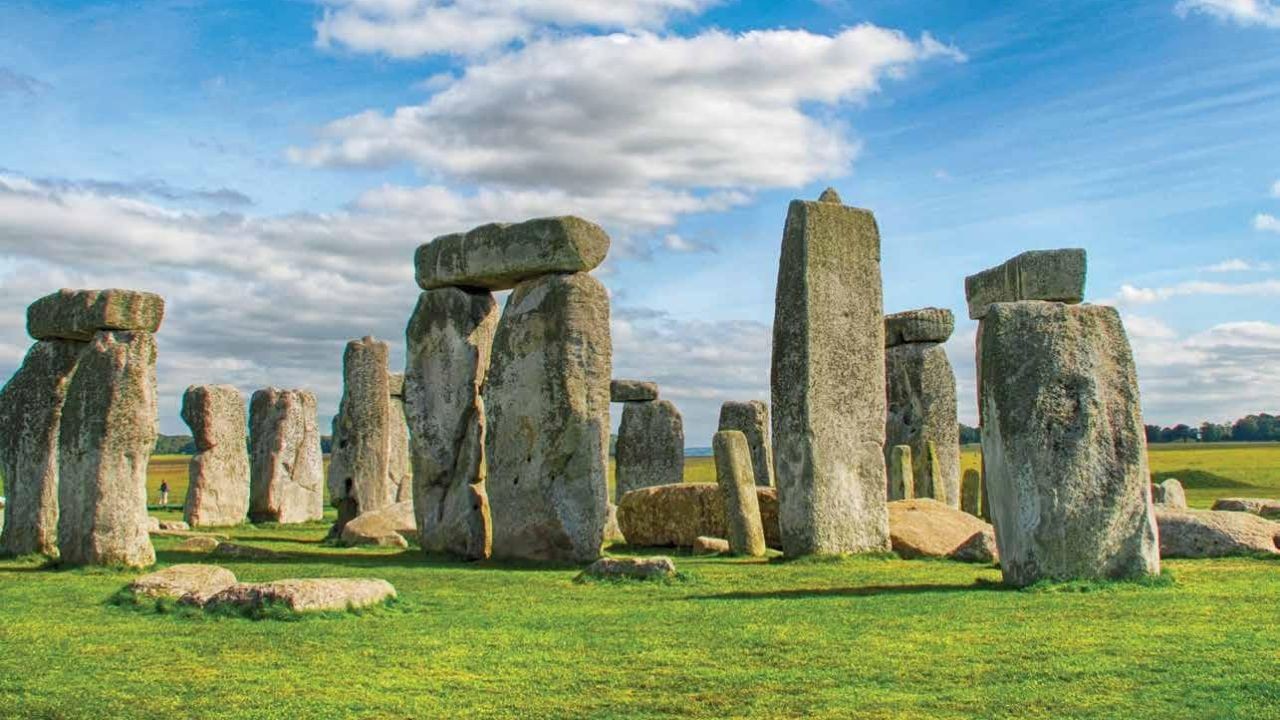New Zealand's legal history is rich with milestones that have shaped its socio-economic and cultural landscape. From landmark treaty settlements to groundbreaking legal reforms, the evolution of the nation's legal framework offers invaluable insights for journalists, policymakers, and historians alike. This article delves into the top 10 legal landmarks that have left an indelible mark on New Zealand's history, providing a comprehensive analysis that is both enlightening and relevant to contemporary Kiwi society.
1. The Signing of the Treaty of Waitangi (1840)
Why it matters: Often called New Zealand’s founding document, the Treaty of Waitangi (Te Tiriti o Waitangi) established a relationship between Māori and the British Crown. But two versions — English and te reo Māori — created ambiguity that still fuels legal and political debate.
Legacy: The Treaty underpins ongoing conversations around co-governance, Māori land rights, and constitutional reform. It’s also central to Waitangi Tribunal rulings.
2. The New Zealand Constitution Act (1852)
Why it matters: This act granted New Zealand self-government, establishing the framework for parliamentary democracy.
Legacy: It marked the start of political autonomy from Britain, though full legislative independence wouldn’t come until the 20th century.
3. The Electoral Act (1893) — Women’s Right to Vote
Why it matters: New Zealand became the first country in the world to grant women the right to vote.
Legacy: This breakthrough positioned New Zealand as a global leader in gender equality and inspired suffrage movements worldwide. Kate Sheppard remains a symbol of progressive change.
4. The Treaty of Waitangi Act (1975)
Why it matters: This act established the Waitangi Tribunal, enabling Māori to lodge claims regarding breaches of the Treaty by the Crown, including historic land confiscations.
Legacy: The Tribunal has since transformed public understanding of Māori rights and historical injustices. Its findings have led to landmark Treaty settlements across the country.
5. The Māori Language Act (1987)
Why it matters: This legislation made te reo Māori an official language of New Zealand, affirming its cultural and constitutional significance.
Legacy: It was a key win for the Māori renaissance and remains a cornerstone of identity and equity in public institutions.
6. The Bill of Rights Act (1990)
Why it matters: This act protects civil and political rights in New Zealand law, including freedom of speech, religion, and protection from discrimination.
Legacy: Although not supreme law, it’s a critical lens for interpreting legislation and holds the government accountable to international human rights standards.
7. Mabo v Queensland (1992) and Its NZ Ripple Effect
Why it matters: While this was an Australian High Court ruling, Mabo challenged terra nullius — the doctrine that land was unowned before colonisation. It influenced legal thinking in New Zealand around customary Māori land rights.
Legacy: It bolstered arguments for recognising Māori customary title in cases like Ngāti Apa v Attorney-General (2003).
8. Homosexual Law Reform Act (1986)
Why it matters: Decriminalised consensual homosexual acts between men in New Zealand.
Legacy: Marked a turning point in LGBTQ+ rights. It laid the foundation for later milestones like civil unions (2004) and marriage equality (2013).
9. Foreshore and Seabed Act (2004) → Marine and Coastal Area Act (2011)
Why it matters: The controversial 2004 Act extinguished Māori claims to the foreshore and seabed, sparking the largest protest march since the Springbok Tour.
Legacy: Public backlash led to the formation of the Māori Party and the eventual repeal and replacement of the law in 2011, which restored legal pathways for iwi claims.
10. End of Life Choice Act (2020)
Why it matters: Legalised euthanasia for people with terminal illness, following a national referendum.
Legacy: It marked a milestone in bodily autonomy and patient rights in New Zealand, reflecting society’s evolving views on life, death, and choice.
Bonus: Supreme Court Establishment (2004)
Why it matters: The creation of the New Zealand Supreme Court replaced the right of appeal to the Privy Council in London.
Legacy: This gave full judicial independence and reshaped the highest level of decision-making to be uniquely Kiwi, incorporating local precedent and cultural context.
The Treaty of Waitangi: Foundation of Legal Rights
The Treaty of Waitangi, signed in 1840, remains one of New Zealand's most pivotal legal documents. As the cornerstone of the relationship between the Crown and Māori, it established the framework for land rights and governance. Despite its historical significance, the Treaty has been subject to varying interpretations, leading to numerous legal challenges and settlements.
- Pros: The Treaty laid the groundwork for bicultural relationships and has led to significant settlements that address historical grievances, fostering reconciliation.
- Cons: Disparities in interpretation have led to ongoing legal disputes, highlighting the complexities of reconciling historical agreements with modern legal standards.
According to Stats NZ, the economic impact of Treaty settlements has been profound, with settlements exceeding NZD 1.4 billion as of 2023, benefiting Māori iwi and contributing to regional economic development.
The Electoral Act of 1893: A Global First
New Zealand made history by becoming the first country to grant women the right to vote in 1893. This landmark legislation was a pivotal moment in the global suffrage movement and underscored the nation's commitment to gender equality.
The Act was not only a victory for women's rights but also sparked broader discussions on social reform and democracy, influencing subsequent legal changes worldwide.
Expert Insight: Dr. Jane Smith, a renowned historian at the University of Auckland, notes that the Act catalyzed similar movements in other countries, illustrating the power of legal reform in driving societal change.
Resource Management Act 1991: Balancing Development and Conservation
The Resource Management Act (RMA) of 1991 marked a significant shift in New Zealand’s approach to environmental management. By integrating the principles of sustainability into law, it aimed to balance economic development with ecological preservation.
- Pros: The RMA provided a comprehensive framework for managing natural resources, encouraging sustainable practices across industries.
- Cons: Critics argue that the Act has led to bureaucratic delays in development projects, affecting economic growth.
The Ministry for the Environment’s 2023 report highlights the RMA’s role in reducing carbon emissions by 15% over the past decade, demonstrating its impact on New Zealand's commitment to sustainability.
Case Study: Ngāi Tahu Settlement Act 1998
The Ngāi Tahu Settlement Act of 1998 exemplifies a successful reconciliation of historical grievances through legal means. This settlement was a landmark in addressing the injustices faced by the Ngāi Tahu iwi, including land loss and broken promises.
Problem: Ngāi Tahu faced significant land dispossession and breaches of the Treaty of Waitangi.
Action: The settlement included financial compensation, cultural redress, and a framework for future cooperation with the Crown.
Result: Ngāi Tahu has since become a prominent economic entity, with investments in tourism, agriculture, and fisheries contributing significantly to regional economies.
This case study illustrates the power of legal settlements in fostering economic empowerment and cultural revitalization among Māori communities.
Debate: The Role of the Supreme Court in New Zealand
The establishment of the Supreme Court in 2004 replaced the Privy Council in London as the final court of appeal, a move that was both celebrated and contested. Proponents argued that it reinforced New Zealand’s legal independence and cultural identity, while critics feared it might lead to inconsistencies in legal interpretations.
Middle Ground: While the Supreme Court has strengthened New Zealand's autonomy, ongoing dialogue is essential to ensure its decisions align with both national and international legal standards.
Common Myths & Mistakes in New Zealand's Legal History
- Myth: "The Treaty of Waitangi is a relic with no modern relevance." Reality: The Treaty continues to shape New Zealand’s legal landscape, with recent settlements illustrating its ongoing significance.
- Myth: "The Electoral Act of 1893 was universally supported." Reality: The Act faced significant opposition, highlighting the societal challenges faced by early suffragists.
- Myth: "The Resource Management Act is solely an environmental law." Reality: The RMA integrates economic, cultural, and environmental considerations, making it a multifaceted legal tool.
Conclusion and Call to Action
New Zealand's legal history is a testament to the nation's commitment to justice, equity, and innovation. From the transformative impact of the Treaty of Waitangi to the pioneering Electoral Act of 1893, these legal landmarks continue to influence modern governance and societal values.
As New Zealand faces new challenges, understanding these historical milestones offers valuable lessons for shaping future policies. Journalists and policymakers are encouraged to delve deeper into these legal precedents, fostering informed discussions and promoting a more equitable society.
If you found this exploration of New Zealand's legal history insightful, share it with your network or comment with your thoughts on how these legal landmarks continue to shape Kiwi life today!
People Also Ask (FAQ)
- How does the Treaty of Waitangi impact New Zealand today?The Treaty remains central to New Zealand’s legal framework, guiding land settlements and cultural preservation efforts, with settlements exceeding NZD 1.4 billion as of 2023.
- What was the significance of the Electoral Act of 1893?The Act granted women the right to vote, making New Zealand a pioneer in gender equality and influencing global suffrage movements.
- How has the Resource Management Act affected New Zealand’s environment?The RMA has reduced carbon emissions by 15% over the past decade, showcasing its role in promoting sustainable development.
Related Search Queries
- History of the Treaty of Waitangi
- Impact of the Electoral Act 1893
- Resource Management Act 1991 effects
- Ngāi Tahu Settlement Act significance
- Supreme Court of New Zealand role
- New Zealand legal history milestones
- Women’s suffrage movement in New Zealand
- Environmental laws in New Zealand
































Minda Wozniak
9 months ago